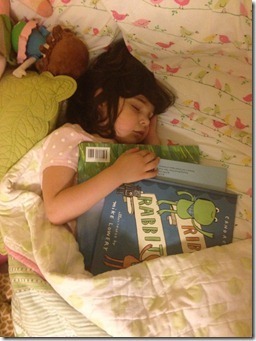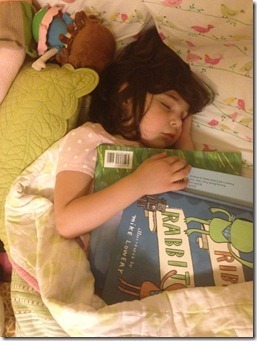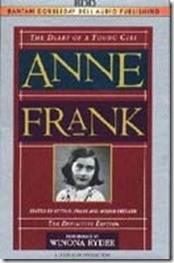Matthew Dicks's Blog, page 461
June 19, 2013
Some religious practices need to go
There is debate in New York City over metzitzah b’peh, an ancient practice common in ultra-Orthodox Jewish communities in which the person circumcising a baby uses his mouth to suck blood from the wound.
Since September, New York City health officials, noting that 12 cases of herpes simplex virus have most likely resulted from the procedure since 2000, have required parents to fill out a consent form that acknowledges they are aware of the risks. Orthodox groups have shrugged off the risks and sued the city to block the consent requirement, but a federal judge ruled in January that the city may temporarily proceed.
The most surprising aspect of this story is that the debate centers on the requirement of a consent form and not on the practice itself.
I may not be a religious person, but I have always been an advocate of religious freedom as long as it doesn’t interfere with the religious freedom of another, but some religious practices, regardless of how ancient or steeped in tradition they may be, must go.
This is one.
One might be inclined to say that in the year 2013, men should not be sucking the blood from infant penises with their mouths, but I don’t think this practice was ever okay. I don’t think metzitzah b’peh was okay last year or a decade ago or in the year 356 AD.
How it has managed to last this long is beyond my imagination.
Many religious practices have been dispensed with over the years because they were recognized as barbaric. We’ve eliminated crucifixion from our daily lives. We no longer stone adulterers to death. We no longer permit slavery. We have stopped burning women suspected of witchcraft.
It seems to me that sucking of the penis of a baby boy following circumcision might fit well into this list, even if the danger of herpes transmission is eliminated.
What’s wrong with a little gauze? A Band-Aid perhaps? Maybe even a little antibiotic cream?
Does the ultra orthodox Jewish community really believe that God would frown upon a world in which a man cannot suck the blood from a baby’s penis?
June 18, 2013
Literary perfection
As a father, a teacher and an author, I cannot imagine a better image than this one. If she wasn’t four years-old, I’d accuse my daughter of setting this up in an effort to acquire something else later on.
I’m proud to say I’ve never done this. Or this. Or this.
Last week I proclaimed pride in not knowing who Amanda Bynes is. Since making that claim, I have learned that she is or was a child actor. What she is today is still a mystery to me because I don’t care and don’t want to know. Based upon the comments that I see about her in my Twitter stream, Amanda Bynes is an easy target of social media cruelty and clearly someone not worth my time.
A friend replied to my comment by expressing her pride in never having seen any of the Real Housewives or Kardashian shows, a claim that I can also proudly make (add The Jersey Shore and The Bachelor/Bachelorette to my list).
In reading her comment, it occurred to me that while we often take pride in our accomplishments and achievements, there are things that we have never done that cause us to feel pride as well.
With that in mind, I hereby present my list of things that I have never done that cause me to feel just as much pride as the things I have done.
_______________________________________
Never watched a single episode of The Real Housewives, The Jersey Shore, or anything involving those Kardashian people
Never used an illegal drug in my entire life (though I am admittedly bereft of good drug stories as a result)
Never bought a lottery ticket
Never smoked a cigarette
Never revealed a secret that I was asked to keep
Never
Never swore in the presence of my mother
Never shoplifted
Never taken a selfie
Never actually said the word “selfie” aloud
June 17, 2013
The Moth: Call Me Dad
The following is a story that I told at a Moth StorySLAM at The Bell House in Brooklyn in March of this year. The theme of the night was Money.
I told a story about my stepfather’s attempt to get me to call him “Dad.”
It was the first time in my storytelling career that I was forced to go first. Going first at a StorySLAM is the kiss of death. As good as your story and performance may be, it’s nearly impossible to go first and win. In fact, I’ve been told it’s never been done.
I know storytellers who come to StorySLAMs with two stories:
One that they believe is a winning story and a lesser story in the event their name is drawn from the hat first.
I have a hard enough time preparing one story. Two would be too much.
I did well despite my first place position. I finished in third place for the evening with scores of 9.2, 9.2 and 9.3.
A mother’s nightgown teaches a woman a universal truth of life.
Katy Waldman of Slate wrote a piece about mistaking her mother’s nightgown for a sundress and accidentally wearing it to work.
Want to guess what happened when this twenty something editor of Slate arrived at the office wearing her 60-year-old mother’s nightgown?
If you said absolutely nothing, you’d be correct.
Most miraculously of all, no one had seemed to notice. (I checked with co-workers the day after I found out about the gaffe, and they pled total obliviousness. Plus, as of now, I still have my job.)
Waldman waxes on amusingly about the possible lessons learned from this experience but eventually lands on the real lesson:
“How you look really doesn’t matter as much as you think.”
It’s a universal truth that takes so many people so long to learn, and for a great many, it is something that is never learned. The fact that Waldman has come to this understanding in her twenties is an accomplishment.
It often much longer to come to this realization.
In fact, if Waldman is single and you live in the Washington, DC area, I would suggest you find and marry her immediately. There’s nothing better in the world than being married to a woman who can throw on a tee shirt, a pair of jeans and a baseball cap and leave the house without a thought about makeup, hair or any other nonsense.
I made a list of things I wanted in a wife before I met Elysha, and this was one of them. I also wanted her to be British, speak Spanish and be independently wealthy, but I’d take her confident, carefree nature over almost any other quality any day.
Last week our school hosted its annual fair. One of the featured attractions of the fair is a dunk tank. Every year teachers climb into the tank and allow children to attempt to dunk them into the water below.
Every year I am surprised that more teachers don’t volunteer for this opportunity. How often in your life are you going to have the chance to sit in a dunk tank and make children laugh? It’s one of those experiences that you will never forget.
While there are many good reasons not to participate in the dunk tank, I’ve been told by colleagues in the past that one of the reasons they don’t volunteer is because they are worried about their hair and makeup. I politely nod at this assertion, but in my head, I’m thinking something like this:
“The only person who even notices your hair and makeup is you. Honestly, no one gives a damn about what you look like, and we almost never notice your appearance on a day to day basis. You know those “good hair days?” You’re the only person on the planet who knows your having a good hair day, and more important, you’re the only one who even cares. You have the opportunity to make a lifelong memory. You have the chance to make kids laugh. You’re going to let your hair stand in the way? That’s either tragic or pathetic. No, it’s both.”
Despite a host of parental assertions, character-building literature and after-school specials, people continue to believe that appearance matters, and while it may to a small degree (and for a small, materialistic percentage of the population, it might mean a lot), Waldman is right.
How you look really doesn’t matter as much as you think.
For Waldman, this realization required accidentally wearing her mother’s nightgown to work (though she was probably on the path to realization before this incident. For others, this truth tends to come with age, increasing self confidence and wisdom.
For people like me, a childhood spent with ill-fitting, hand-me-down clothing and $5 haircuts teaches you this lesson. Though you’re clearly not wearing any of the trendy clothing that your classmates are wearing, you eventually realize that no one seems to care. You worry like hell about it for a while, and then one day you come to the understanding that clothing is fairly irrelevant. Your hair is fairly irrelevant. Even things like your weight and height are fairly irrelevant.
If you’re funny, brave, well informed and occasionally helpful, that’s about all you need in life to be accepted.
If you don’t believe me, if you think that this scene from The Devil Wears Prada actually possesses a kernel of real truth, I suggest you wear your mother’s nightgown to work one day and see what happens.
June 16, 2013
Wedding etiquette torn down by one of the most popular advice columnists in the world. I’m impressed.
Emily Yoffe, the Ask Prudence advice communist for Slate, recently did a podcast in which people were able to ask questions about wedding etiquette via the telephone as part of Slate’s wedding issue.
Yoffe tends to lean toward tradition and formality, which differs from my natural inclinations, but I found myself both in agreement and incredibly impressed by her answers during the course of this podcast.
In response to a bride-to-be who recently learned that her mother-in-law plans on wearing a cream-colored dress to the wedding, Yoffe told the caller not to say a word to her future mother-in-law about the choice of color. Yes, it’s true that it’s traditional for only the bride to wear a white dress to her wedding, but Yoffe assured the bride that no one is going to mistake and the mother-in-law because their dresses are similar in color, nor does the mother-in-law’s dress have any bearing over the enjoyment that the bride should have that day.
Moreover, and more important, she also implored the bride to take the high road if someone commented on the dress color at the wedding by simply stating that she thought her mother-in-law looked beautiful.
The tradition that the bride is the only woman wearing white at the wedding is true enough, but Yoffe is also willing to acknowledge that this is a fairly meaningless tradition, and that the bride’s relationship with her mother-in-law, who has already bought the dress and expressed her love for it, is more important than ridiculous matters of dress color.
Yoffe also acknowledges the likelihood that the bride would speak about the mother-in-law’s decision behind her back and is wise enough to advise against it. I cannot tell you how many times my respect for a person has eroded after listening to them make petty, backbiting, materialistic comments like the ones Yoffe anticipated about someone who is not in the room.
Another caller expresses her concern over the mounting cost of four weddings that she is going be in this year as a bridesmaid. As a fulltime student with a part-time job, the cost of the dresses, the alterations, shoes and the out-of-town bachelorette parties has become too much for this woman’s checking account to bear. She asked Yoffe if it would be acceptable to not bring a gift to the wedding.
Yoffe says that you are obligated to do “only what you are able to do.”
Then she speaks blasphemy:
“Gifts are optional.”
Except it’s not blasphemy. We all know how much it costs to be a bridesmaid these days with bridal showers, bachelorette parties and wedding costs.
What kind of bride would not acknowledge and understand this when it comes to the bridesmaid’s choice of gift?
A despicable one, perhaps, but you shouldn’t be serving as bridesmaid for a despicable person.
Yoffe goes on to say that you can pick up something small but nice for as little as ten or twenty dollars, wrap it up and you have “discharged your duty.”
Hallelujah.
What Yoffe fails to acknowledge is the disgusting and all-to-common custom of discussing the quality, choice and even cost of gifts with friends and family members after the fact.
“Can you believe that Aunt Judith only gave me $50?”
“My friend, Tina, went off-registry and bought me this awful looking vase that I’m sure was on sale.”
“What did Kim and Joe give you for your wedding? Were they as cheap as they were with me?”
On this week’s Slate’s DoubleX podcast, Slate editor Allison Benedikt actually argues in favor of bridal registries for this very reason, claiming that the potential gossip material that bridal registries provide is too valuable to allow the tradition die.
If this woman follows Yoffe’s advice and gives an inexpensive gift or no gift at all, it is likely that the bride will gossip about her, maybe only to her parents or sister or favorite cousin, but probably more.
It’s possible that the bride possesses the degree of grace, dignity, restraint and/or perspective necessary to to never speak about the quality of this bridesmaid’s gift, but I fear those people are few and far between.
As vile and disgusting as this kind of gift gossip happens to be, I have seen far too much of it over the course of my lifetime to believe that it won’t happen here.
Still, I agree and admire Yoffe’s advice. She’s right. The cost of the gift should never matter, but it should especially never matter when a bridesmaid is involved.
To hell with the possible gossip. If you spend hundreds of dollars on a dress, shoes, alterations, hair, a wedding shower and a bachelorette party, you should not be expected to also purchase a wedding gift.
Only a loser moron materialistic cretin who sucks at life would say otherwise.
June 15, 2013
June 14, 2013
My advice: Listen to The Diary of Anne Frank on a 1995 Sony Walkman
The first time I read The Diary of Anne Frank, I listened to the audiobook on a Sony Walkman. It was 1995, and the recording was on cassette tape.
This was by far the best way to read Anne Frank’s diary for the first time.
I was raking leaves on my front lawn. It was late afternoon. The October shadows were long and thin. The air was cool.
It was a moment that I will never forget.
In fact, it was one of the most profound and moving experiences that I have ever had with a book. I finished listening to a diary entry in which Frank talks about the struggle between her interior self and her public self.
“…when everybody starts hovering over me, I get cross, then sad, and finally end up turning my heart inside out, the bad part on the outside and the good part on the inside, and keep trying to find a way to become what I’d like to be and what I could be if . . . if only there were no other people in the world.
Then there was no more.
Just silence.
At first I thought the reels had jammed, an all-too-common occurrence in the days of cassette tapes, but when I looked into the tiny window of the Walkman, I saw that the reels were spinning and the tape was coming to an end.
I pressed the stop button and extracted the cassette in order to turn it over. I saw the letter B on the tape.
I had already played both sides of the cassette.
Confused, I walked over to the case of cassette tapes on the front stoop to get the next one and discovered that there were no more. As I had thought, this was the last cassette.
That was it. As swiftly and unexpectedly as Frank and her family had been taken from their annex by the Nazis, The Diary of Anne Frank had come to an end.
I couldn’t believe it.
It’s not as if I was unaware of Anne Frank’s fate. I knew of her tragic death in the concentration camps.
It’s not as if I was expecting her diary to end on a high note. But the suddenness of its end, without a warning of any kind, literally stopped me in my tracks.
Had I been reading the book instead of listening to it, I would’ve had a measure of the remaining pages and been better prepared for the end. Unlike Anne and her family, I would’ve seen the end coming.
Had I been listening to the book on my iPhone, as I listen to audiobooks today, I would’ve been aware of the time remaining on the recording and not been so confused or surprised when it came to an end.
But because the technology did not allow for a warning, the ending was one of the most heart-wrenching moments in all of literature for me. Anne Frank was taken from me with an abruptness commensurate with her arrest. One day she was writing her diary, and the next day she was on a train that would eventually lead her to her death, never to write a single word again.
I do not cry easily. Even when I feel the need to cry, I tend to suppress my emotions like most healthy American males. Standing in my front yard that day, amidst a carpet of orange and red leaves, I did not cry upon realizing that I had reached the end of Anne Frank’s diary, and in a way, the end of Anne Frank’s life.
I wept.
I wept, knowing that Anne Frank had never been given the chance to tell a single story. Tear streamed down my cheeks with the sudden awareness that Anne Frank went to her grave never knowing how many millions of people would ultimately read her diary and cherish every word.
I may have wept for Anne Frank regardless of how I consumed her diary for the first time, but I suspect that the abrupt ending contributed greatly to my emotional response. Anne Frank spent two years hiding with her family in their annex, and in that time, she wrote a diary that will be read for centuries. She had her whole life stretched out in front of her, and whether she believed it or not, it was rich with possibility. Despite her doubts, she was a gifted writer even at the age of fifteen. Then suddenly, without warning, her writing came to the end at the hands of evil men. She was separated from her family, shipped to a concentration camp, and was dead six months later.
Someday I will play the audiobook of The Diary of Anne Frank for my children. My plan is to play it in the car, in the midst of a long, cross-country road trip. With any luck, they won’t see the end coming any more than I did on that fall afternoon.
Some books are better consumed, at least the first time, in audio form, and preferably using technology from the mid-1990s.
I don’t love Star Trek, but this most recent Star Trek TELEVISION SHOW is amazing.
I have never been a huge Star Trek fan. The writers of Star Trek had the entire universe at their fingertips, and yet again and again they placed their characters in places like the Old West, Nazi Germany and the goddamn holodeck.
I don’t want to see cowboys and Germany soldiers. I want to “new life and new civilizations.”
That said, a new web series called Star Trek Continues is impressive.
Star Trek Continues takes up where the original series left off, even creating a vignette that takes place moments after the final scene of “Turnabout Intruder”—the final episode of the original series, a clever way of tying it all together. Two other shorts are available as well. And now they’ve released their first full-length episode: “Pilgrim of Eternity”.
The best thing about this series, and especially this full length episode, is that it’s specifically created to appear as if it were made in the 1960’s. Not only are the sets identical to the original show, but the music, the sound effects and even the makeup and lighting are identical to James T. Kirk’s original Enterprise.
Obviously the actors have changed, but the casting director did a terrific job of finding people who matched their 1960’s counterparts well.
The episode is good enough, and I’m happy to report that Kirk and Spock don’t travel back the the Great Depression in order to solve a mystery, but I had more fun just examining this new piece of film constructed to appear fifty years old.
June 13, 2013
Unfair assumption #11
People who tell you that a tomato is actually a fruit and a banana is actually a berry are actually some of the most boring, pedantic and annoying people on the planet.
You can read my previous ten unfair assumptions here.








